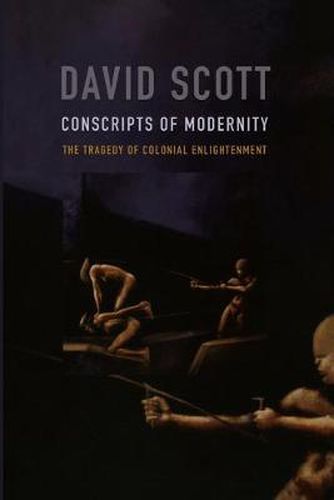Readings Newsletter
Become a Readings Member to make your shopping experience even easier.
Sign in or sign up for free!
You’re not far away from qualifying for FREE standard shipping within Australia
You’ve qualified for FREE standard shipping within Australia
The cart is loading…






Conscripts of Modernity points the way toward a rethinking of the present postcolonial moment. David Scott argues that if scholars of modernity and postcolonialism want to alter understandings of the stalled and disillusioned present - and thereby offer new prospects for the future - they must reconceive the relation of the past to the present. He asserts that anticolonial stories have typically assumed a distinctive narrative form: that of romance. Usually narratives of overcoming and vindication, of salvation and redemption, these stories largely depend on a certain utopian horizon toward which the emancipationist history is imagined to be moving. Scott suggests that as a mode of narrating the colonial past in relation to the postcolonial present and future, tragedy provides a more useful narrative framework than romance does. In tragedy, the future does not appear as part of a seamless forward movement, but instead as a slow and sometimes reversible series of ups and downs. Scott explores the political and epistemological implications of the narrative relation between the past and future through a reconsideration of C. L. R. James’s masterpiece of anticolonial history, The Black Jacobins, first published in 1938. In that book, the story of Toussaint Louverture and the making of the Haitian Revolution is told as one of romantic vindication. As Scott points out, part of what makes The Black Jacobins a work of enormous historical and political interest is the fact that in the second edition, published in the United States in 1963, James inserted new material suggesting that that story might usefully be told as tragedy. Scott uses this shift in James’s story to compare the relative yields of romance and tragedy in telling the story of the passage from the colonial past to the postcolonial future.
$9.00 standard shipping within Australia
FREE standard shipping within Australia for orders over $100.00
Express & International shipping calculated at checkout
Stock availability can be subject to change without notice. We recommend calling the shop or contacting our online team to check availability of low stock items. Please see our Shopping Online page for more details.
Conscripts of Modernity points the way toward a rethinking of the present postcolonial moment. David Scott argues that if scholars of modernity and postcolonialism want to alter understandings of the stalled and disillusioned present - and thereby offer new prospects for the future - they must reconceive the relation of the past to the present. He asserts that anticolonial stories have typically assumed a distinctive narrative form: that of romance. Usually narratives of overcoming and vindication, of salvation and redemption, these stories largely depend on a certain utopian horizon toward which the emancipationist history is imagined to be moving. Scott suggests that as a mode of narrating the colonial past in relation to the postcolonial present and future, tragedy provides a more useful narrative framework than romance does. In tragedy, the future does not appear as part of a seamless forward movement, but instead as a slow and sometimes reversible series of ups and downs. Scott explores the political and epistemological implications of the narrative relation between the past and future through a reconsideration of C. L. R. James’s masterpiece of anticolonial history, The Black Jacobins, first published in 1938. In that book, the story of Toussaint Louverture and the making of the Haitian Revolution is told as one of romantic vindication. As Scott points out, part of what makes The Black Jacobins a work of enormous historical and political interest is the fact that in the second edition, published in the United States in 1963, James inserted new material suggesting that that story might usefully be told as tragedy. Scott uses this shift in James’s story to compare the relative yields of romance and tragedy in telling the story of the passage from the colonial past to the postcolonial future.